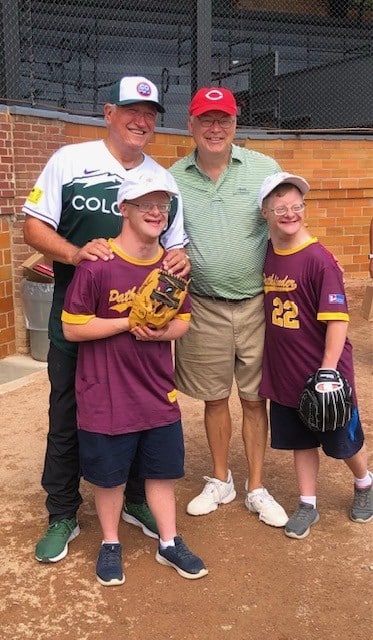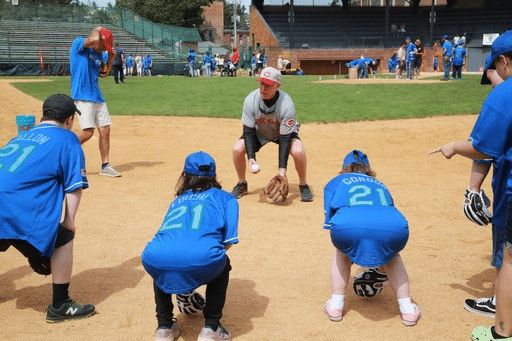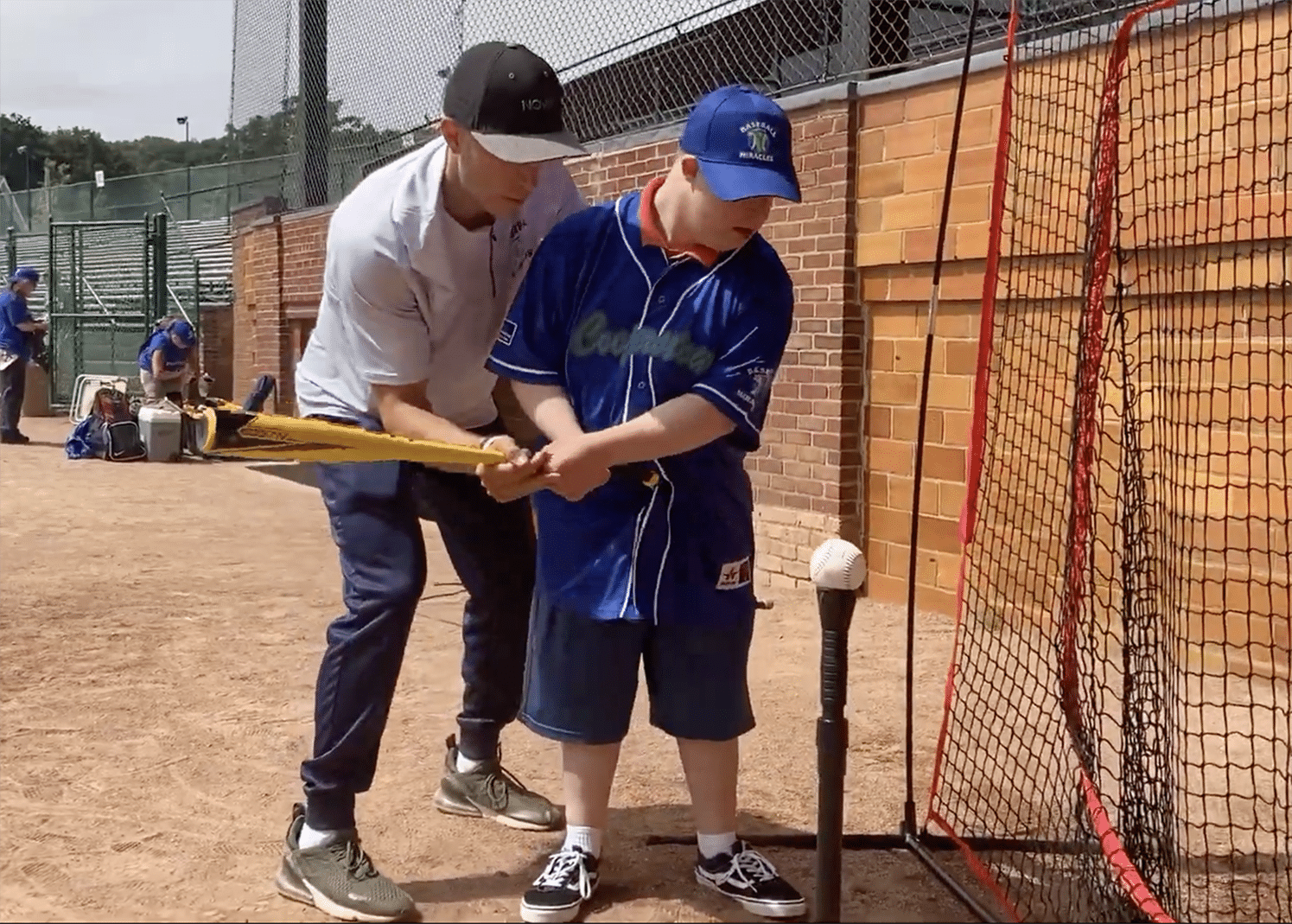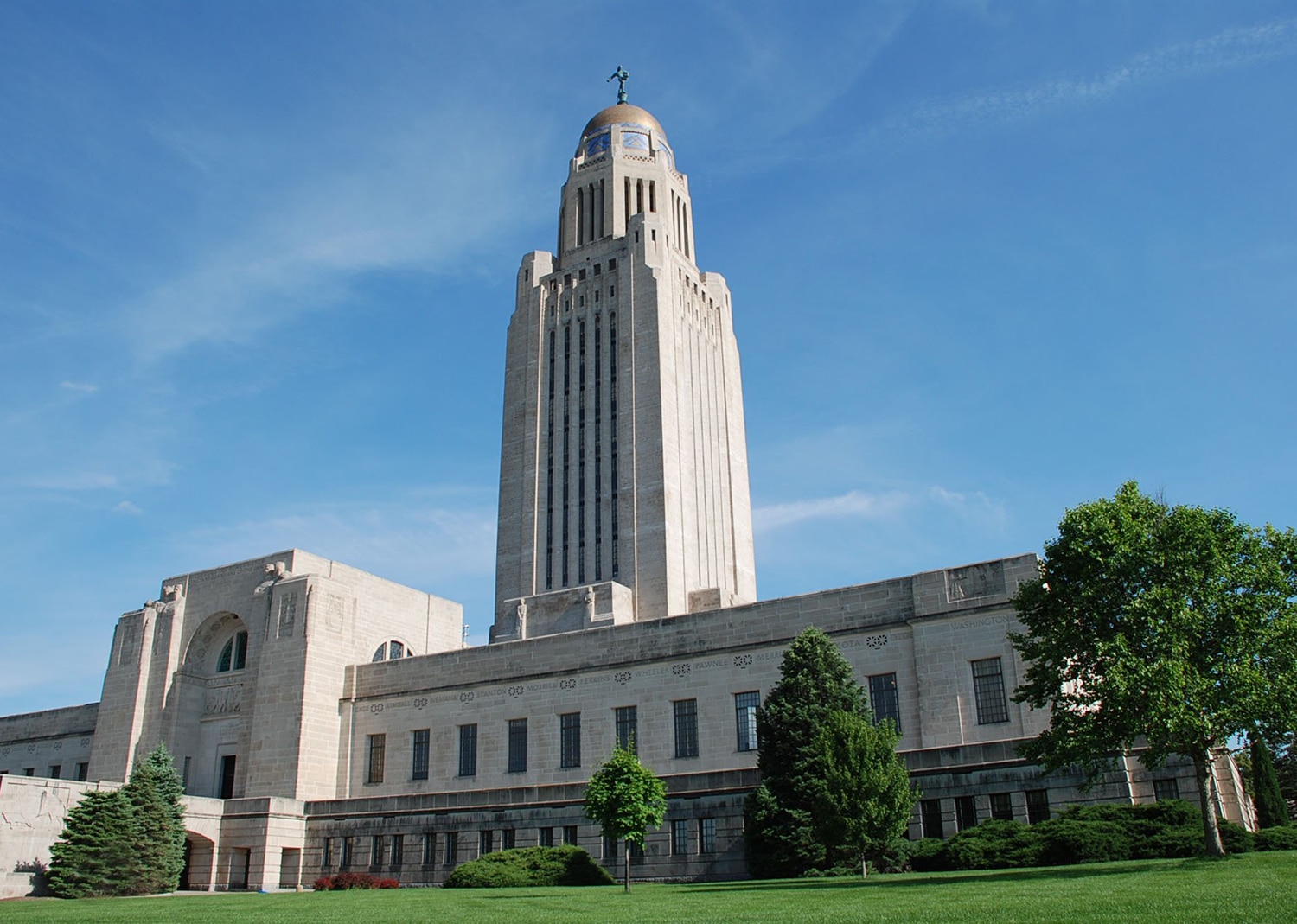Dr. Joseph Dutkowsky is the first to admit that he has the greatest job in the world. The orthopedic surgeon cares for persons with childhood onset disabilities, from Down syndrome to cerebral palsy, every day. And now, once a year, he plays baseball with them — together with former Major League Baseball (MLB) players.
“They get a glove, they get a baseball, they get to do it, and they can’t wait for the next year to come around. Neither can the ballplayers,” Dr. Dutkowsky, a doctor with 40 years experience in Cooperstown, New York, told Our Sunday Visitor. “And me? I just smile a lot.”

Dr. Dutkowsky spoke ahead of the fourth annual baseball clinic or workshop that he helped establish for teenagers and young adults with physical and intellectual disabilities. The event, led by retired MLB players, takes place on Aug. 27 in Cooperstown at Doubleday Field, which calls itself home to the first baseball game. Together with other volunteers and groups, Dr. Dutkowsky helps organize the clinic, which teaches participants the fundamentals of the game.
But, Dr. Dutkowsky is quick to add, the participants give the organizers far more.
“There isn’t a ballplayer who hasn’t come off that field and said to me, ‘I received more than I gave today,'” he said.
Four years of the baseball clinic
The clinic, which is free to participants, is organized by a myriad of groups, namely Baseball Miracles, a nonprofit based in Marlboro, New York, that helps underserved youth play baseball, Pathfinder Village in Edmeston New York, a residential community serving individuals with Down syndrome and developmental disabilities, and the Major League Baseball Players Alumni Association, Dr. Dutkowsky said.
He listed the MLB alumni participating as Clint Hurdle, Tom Carroll, Gary Holle, Joel Bennett, Derrick May, Dickie Noles, Steve Grilli and Jeff Manto.
In addition to welcoming Pathfinder Village residents, the clinic is expanding this year to include kids from an upstate cerebral palsy center in Utica, New York, he said.
“We’ll probably have 70 players on the field,” Dr. Dutkowsky said. “Some of these people can run and throw, and some of these people will never take a single step because they’re in wheelchairs. But you know what? They’re going to be on the field playing baseball and having fun.”
Monica Clark, the manager of fund development and people engagement at Pathfinder Village, spoke about being a part of the organizing team.
“This is our fourth year running it, and by now, we’ve got the process down to a science,” she told Our Sunday Visitor. “Each of us takes on specific responsibilities, putting plans into motion, and then we come together on the field to witness the magic of baseball, bringing joy to people of all ages and abilities.”
“The entire day is filled with excitement,” she added, “but the most touching part is seeing everyone completely immersed in the moment, experiencing America’s pastime in such an inclusive and meaningful way.”
The start of something new
Dr. Dutkowsky revealed that the baseball clinics are based on other workshops that he’s also involved with at the New York City Ballet. Dr. Dutkowsky, a Catholic who describes himself as an “old white-haired country doctor,” has dedicated his life to those with disabilities and published a memoir, “Perfectly Human,” in 2017 about caring for and learning from those with disabilities, their families and those on the margins of society. He has spoken with outlets such as The New York Times and PBS about his faith and career, and even appeared on “CBS Sunday Morning” in 2018 for the ballet workshops.
Those began 10 years ago, he said, when a mother wrote to the ballet and asked if they had workshops for children with cerebral palsy and disabilities. They didn’t.
At the time, Dr. Dutkowsky was helping start the Weinberg Family Cerebral Palsy Center at Columbia University in New York City.
“Next thing you know, I get an email out of the blue: Would I help the New York City [Ballet] set up workshops for kids with disabilities?” he said. “We did it, and the ballet loved it. The kids loved it … and 10 years later, we’re still doing it.”
Those workshops sparked the idea for baseball clinics after Dr. Dutkowsky spoke at a Catholic MLB players conference where he encouraged the attendees to do more for youth with disabilities and showed a video of the ballet workshop, he said.
Afterward, a big, tall man came up to him and said, “Joe, you’re right. We got to do it,” he remembered. That man turned out to be Tom Carroll, a Catholic and former MLB player with a World Series ring from when he pitched for the Cincinnati Reds.
They weren’t sure where to start, but, as Dr. Dutkowsky described, “God put it together.”
Four groups joined forces to make it happen. Baseball Miracles provided free gloves, jerseys, balls and all of the equipment needed. Pathfinder Village provided the clinic participants. Tom Carroll got together with Clint Hurdle, a former MLB player and manager, and the Major League Baseball Players Alumni Association, to provide retired professional players.
For his part, Dr. Dutkowsky, who played baseball growing up, volunteers wherever he is needed. He serves as the doctor present, works various stations, helps teach and play, makes the announcements and even once sang the National Anthem when someone forgot to show up.
“Four of us actually stood around the microphone and sang the National Anthem. You just make it happen,” he said. “I have not been invited to Yankee Stadium for a repeat performance, which doesn’t surprise anybody, but doggone, I’ve sung the National Anthem at Doubleday Field.”

Playing ball
Dr. Dutkowsky described what the baseball clinics look like. When the former MLB players first arrive, they sign baseballs that go to every participant. Then, he announces everyone in.
“Believe it or not, I’m the announcer,” Dr. Dutkowsky said. “Our players stand along the first and third base lines, like you see before the World Series, and we announce everybody’s name over the loudspeaker.”
Next, he provides a brief introduction of the MLB alumni before they sing the National Anthem and yell, together, “play ball!”
They typically set up six different stations, Dr. Dutkowsky said: a couple of batting stations, a pitching station, an outfield station, an infield station and even a station where they take pictures and make baseball cards.
The former MLB players go to the various stations to teach participants basic skills, he said, adding that he announces when participants should move to the next station.
A judgment-free zone
Dr. Dutkowsky said that, when he asks the ballerinas and baseball players involved in these workshops what’s in it for them, they all answer the same: “These kids don’t judge us.”
These artists and athletes are judged every day on their performance, he explained, but when they’re with these kids, their mindset changes. That’s because the children and young adults in these workshops look at the ballerinas and MLB alumni “with eyes that say, ‘I’m just so happy you would spend a little time with me today,'” he described.
“You know what I’ve finally figured out?” he said. “These kids are giving a glimpse to these individuals of how God looks at them.”
He called these young people, he said, “the saints of the third millennial Church.”
“I think they’re the ones who are going to … get us out of our self-centered, narcissistic world and pull us back and say, ‘Wait a minute, what’s really important?'” he said.
The image and likeness of God
People with disabilities are made in the image and likeness of God, Dr. Dutkowsky stressed.
“If you just see the image and likeness of God in all the perfect people … that’s a very flat image,” he said. “Where, when you begin to see the image and likeness of God in a child with cerebral palsy, in an adult with Down syndrome, and in a kid with fragile X syndrome and another kid with autism, you know what? The image and likeness of God becomes so much more expansive.”
Seeing God’s image in every person is life-changing, he said, and leads people to realize that they, too, bear that image.
“If you see the image and likeness of God in every person you deal with, you know one day what happens?” he said. “You [look] in the mirror, and then you realize that you really are at the center of a lovefest with the creator of the entire cosmos.”
Referencing his memoir, “Perfectly Human,” Dr. Dutkowsky called the participants of the ballet and baseball workshops “perfectly human.”
“That’s what you are, and that’s what I am,” he said. “That’s what every one of these kids with Down syndrome is, and every one of these kids with CP [cerebral palsy], and every one of these high performance ballplayers and ballerinas, they’re all perfectly human.”
One cross for all
Dr. Dutkowsky encouraged people to allow themselves “to enjoy the totality of humanity, because that’s what Jesus did.”
“There’s no separate cross for cerebral palsy. There’s no separate cross for Down syndrome. There’s no separate cross for ballerinas or baseball players or white-haired old doctors,” he said. “It’s the same one.”
He emphasized a message he shares in his book: that the ground is never more level than at the foot of the cross.
“If you really believe that,” he concluded, “you see there is no ‘them’ and ‘us.’ It’s just us.”







